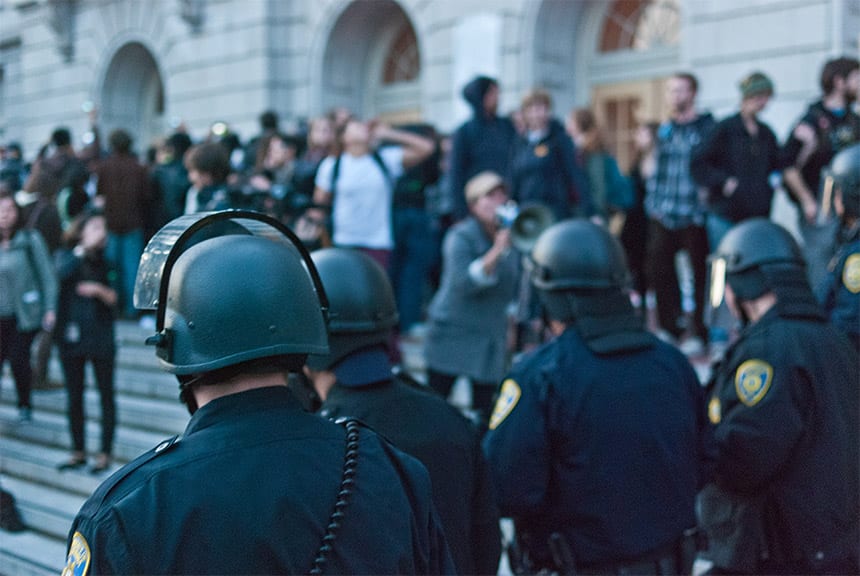
With UC Berkeley examining the relationship between its campus police department and the school community, members of the Berkeley Law Staff Circle on Anti-Racism (SCAR) weighed in on recommendations sent to Chancellor Carol Christ.
The Independent Advisory Board — the result of years of advocacy by activists, particularly Black student organizations, from around the campus — explored how the university could reimagine its community safety efforts without relying heavily on armed officers. The SCAR response was sent as a comment on the report itself and as a letter directly to Christ.
“We urge that the recommendations in the report be paired with binding requirements, commitments, and deadlines that ensure rigorous, committed implementation if they are to succeed where so many other well-intentioned reform recommendations have previously failed,” more than 30 Berkeley Law staffers who belong to SCAR wrote.
SCAR began in 2015 with a small clutch of staff members wanting to create a space for conversation and anti-racism work. The group has grown over time, especially during this tumultuous summer, and is planning trainings and other resources for the entire Berkeley Law community.
Its letter stated support for the board’s recommendations, including eliminating military-grade weapons from the UCPD; ensuring transparent data on policing practices and outcomes; and holding periodic “know your rights” trainings for community members that aren’t run by the police force.
The board also recommended ending the use of armed officers in wellness checks and mental health-related calls. SCAR members suggested that when an armed officer must respond, a trained mental health specialist should also be there to help de-escalate the situation.
“We also emphasize the need for robust oversight of mental-health focused public health and safety response, recognizing that systemic racism also pervades this country’s systems of social services, health care, and mental health care,” the group wrote.
They suggested additional actions around the use of force and accountability. Christ recently banned carotid holds — the type of tactic that police used to kill George Floyd — by UCPD officers. SCAR members argued for new structural protections to make sure officers abide by use-of-force rules, with serious consequences for those who don’t.
In addition, the letter called for transparency in negotiations with the officers’ union and a contract that promotes accountability; a wholesale examination of UCPD culture to address systemic racism and sexism; and the establishment of a permanent independent oversight body made up of university faculty, staff, and students.
“We wholeheartedly support this approach and look forward to further engagement and progress on these important actions,” the group wrote.
—Gwyneth K. Shaw